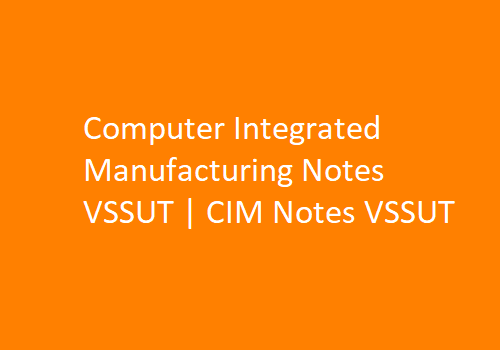Here you can download the free lecture Notes of Information Security Pdf Notes – IS Pdf Notes materials with multiple file links to download. Information Security Notes Pdf – IS Notes Pdf book starts with the topics

The Information Security Pdf Notes – IS Pdf Notes
Information Security Notes pdf – IS pdf notes – IS notes pdf file to download are listed below please check it –
Information Security Notes pdf Book
Link: Complete Notes
Unit 1
Link: Unit 1 Notes
Unit 2
Link: Unit 2 Notes
Unit 3
Link: Unit 3 Notes
Unit 4
Link: Unit 4 Notes
Unit 5
Link: Unit 5 Notes
Unit 6
Link: Unit 6 Notes
Note :- These notes are according to the r09 Syllabus book of JNTUH. In R13 & R15, 8-units of R09 syllabus are combined into 5-units in r13 syllabus. Click here to check all the JNTU Syllabus books
Information Security Notes Pdf – IS Notes Pdf | JNTUH B Tech 2025 Lecture Notes

Are you pursuing a B. Tech degree and looking for comprehensive Information Security notes? You’re in the right place. Here, you can download the free lecture notes of Information Security Pdf Notes (IS Notes) with multiple file links to make your study easier. These notes are specifically tailored to meet the JNTUH R09 syllabus requirements. In the updated R13 and R15 syllabi, the 8-units from the R09 syllabus have been condensed into 5-units. If you need further clarification on the syllabus, please refer to the JNTUH syllabus book.
Information Security, often abbreviated as IS, is a vital subject in the engineering curriculum, particularly for those specializing in computer science and IT. The course covers a wide range of topics essential for understanding the principles of protecting information systems from unauthorized access, use, disclosure, disruption, modification, or destruction. These lecture notes provide a comprehensive guide to mastering Information Security concepts, preparing you effectively for your exams.
Information Security (IS) Pdf Lecture Notes – JNTUH B. Tech 2025
Primary Keyword: Information Security Notes
Secondary Keywords: Information Security Notes Pdf, Information Security Lecture Notes Pdf, Information Security Handwritten Notes
Introduction to Information Security (IS) and Its Importance
Information Security is a critical area in today’s digital age, focusing on protecting information from various threats to ensure confidentiality, integrity, and availability. As cyber threats become more sophisticated, understanding the principles of Information Security becomes essential for future engineers and IT professionals. This course covers various aspects of information security, including security attacks, encryption algorithms, network security protocols, web security, and more.
The Information Security Notes provided here are comprehensive, covering all the essential topics in detail, aligned with the JNTUH syllabus. These notes are perfect for B. Tech students preparing for their 2024 exams and for anyone looking to build a strong foundation in information security.
Overview of Information Security (IS) Notes Pdf
The Information Security (IS) Notes Pdf offers a detailed exploration of various security concepts covered in the syllabus. These notes are especially useful for JNTUH students who are preparing for their B.Tech exams. The content is structured to facilitate easy understanding, with each topic explained in detail, including definitions, examples, and solved problems. Additionally, the notes include exercises at the end of each unit to help students practice and test their understanding of key concepts.
Detailed Topics Covered in Information Security (IS) Notes Pdf
- Unit 1: Introduction to Security Attacks and Services
- Security Attacks: Learn about different types of security attacks, such as interruption, interception, modification, and fabrication. Understand how these attacks compromise the security of information systems.
- Security Services and Mechanisms: Explore various security services, including confidentiality, authentication, integrity, non-repudiation, access control, and availability. Study the mechanisms that support these services, such as encryption, digital signatures, and firewalls.
- Model for Internetwork Security: Understand the layered approach to securing internetworks and the use of security protocols to protect data transmission.
- Internet Standards and RFCs: Gain insights into the standards and protocols established by organizations like the Internet Engineering Task Force (IETF) to enhance security.
- Buffer Overflow and Format String Vulnerabilities: Study how vulnerabilities in software can be exploited by attackers and the preventive measures that can be taken.
- TCP Session Hijacking and Man-in-the-Middle Attacks: Learn about the tactics used by attackers to hijack sessions and intercept communications, along with countermeasures to protect against these threats.
- Exercises and Applications: Practice problems and case studies to apply the concepts learned in real-world scenarios.
- Unit 2: Conventional Encryption Principles
- Conventional Encryption Algorithms: Understand the principles behind traditional encryption algorithms, such as DES and AES, and their use in securing data.
- Cipher Block Modes of Operation: Explore different modes of operation for block ciphers, including ECB, CBC, OFB, and CTR, and their applications.
- Key Distribution and Management: Learn the methods for distributing encryption keys securely and the challenges involved in managing keys in a networked environment.
- Message Authentication and Secure Hash Functions: Study the use of message authentication codes (MACs) and secure hash algorithms (e.g., MD5, SHA) to ensure data integrity and authenticity.
- Exercises on Encryption Techniques: Solve problems related to encryption, decryption, and key management to strengthen your understanding of these concepts.
- Unit 3: Advanced Encryption Techniques
- Electronic Code Book (ECB) and Cipher Block Chaining (CBC): Understand how these modes of operation work and their vulnerabilities.
- Output Feedback Mode (OFB) and Counter Mode (CTR): Learn about these advanced modes of operation and their applications in secure communications.
- Message Authentication and Encryption: Explore the techniques used to authenticate messages and ensure data confidentiality.
- Hash Functions and the MD5 Algorithm: Gain insights into the construction and use of hash functions, including the MD5 Message Digest Algorithm.
- Exercises on Advanced Encryption: Practice problems involving the implementation and analysis of advanced encryption techniques.
- Unit 4: Email Privacy and Cryptography
- Email Privacy Protocols: Study the protocols designed to protect email privacy, such as Pretty Good Privacy (PGP) and Secure/Multipurpose Internet Mail Extensions (S/MIME).
- PGP Operation and Cryptographic Keys: Understand the various operations of PGP, including authentication, confidentiality, and email compatibility. Learn about cryptographic keys and key rings used in PGP.
- Segmentation and Reassembly: Explore how PGP handles large messages and ensures their integrity and confidentiality during transmission.
- Exercises on Email Security: Solve practical problems involving the configuration and use of email security protocols.
- Unit 5: Internet Protocol Security (IP Sec)
- Introduction to IP Sec: Understand the framework of open standards for securing communications over IP networks.
- IP Sec Security Services: Learn about the various security services provided by IP Sec, including peer authentication, data origin authentication, data integrity, data confidentiality, and replay protection.
- Implementing IP Sec: Explore the practical aspects of implementing IP Sec in a network, including configuration and management.
- Exercises on Network Security: Apply the concepts learned to design secure network architectures and implement security protocols.
- Unit 6: Web Security and Secure Communication
- Web Security Requirements: Understand the security requirements for web applications and the protocols designed to meet these requirements.
- Secure Socket Layer (SSL) and Transport Layer Security (TLS): Learn about the protocols that provide secure communication over the Internet, including the SSL Record Protocol and the SSL Change Cipher Spec Protocol.
- Secure Electronic Transaction (SET): Study the SET protocol designed to ensure secure electronic transactions over the Internet.
- Web Traffic Security Approaches: Explore different approaches to securing web traffic, including the use of SSL/TLS.
- Exercises on Web Security: Practice problems related to the implementation and management of web security protocols.
Benefits of Using Information Security (IS) Notes Pdf

- Comprehensive Coverage: The notes cover all key topics in detail, providing a thorough understanding of each concept.
- Easy to Understand: Complex concepts are explained in a simple, easy-to-understand manner, with plenty of examples and diagrams.
- Practical Applications: The notes include real-world applications of information security concepts, helping students understand their relevance in practice.
- Free and Accessible: These notes are available for free download, making them accessible to all students.
- Exam Preparation: The notes are specifically designed to align with the JNTUH syllabus, helping students prepare effectively for their exams.
Links to Download IS Notes Pdf
To download the complete set of Information Security (IS) Notes Pdf or access specific units, visit the Smartzworld website, a reliable source for academic resources. Simply click on the links provided to download the materials.
Link: Complete Notes
Unit 1
Link: Unit 1 Notes
Unit 2
Link: Unit 2 Notes
Unit 3
Link: Unit 3 Notes
Unit 4
Link: Unit 4 Notes
Unit 5
Link: Unit 5 Notes
Unit 6
Link: Unit 6 Notes
How to Use These Notes Effectively
- Understand the Syllabus: Review the JNTUH syllabus to understand the topics covered and their weight in the exam.
- Follow a Study Schedule: Create a study plan that allows you to cover each topic in detail, with ample time for revision.
- Practice Regularly: Use the exercises at the end of each unit to test your understanding and practice problem-solving skills.
- Supplement with Additional Resources: Use textbooks and online resources to supplement these notes and deepen your understanding.
- Seek Clarifications: If you have any doubts, refer to the JNTUH syllabus book or consult with your professors for further clarification.
FAQs
Q1. Where can I download the Information Security Notes Pdf?
You can download the notes from the provided links for each unit or the complete set from Smartzworld.
Q2. How to download the IS Notes Pdf?
To download the IS Notes Pdf, click on the provided links on the Smartzworld website and follow the instructions.
Q3. How many modules are covered in the IS Notes Pdf?
The IS Notes Pdf covers 5 modules according to the R13 and R15 syllabus, combining the original 8 units from the R09 syllabus.
Q4. What topics are covered in the IS Notes Pdf?
Topics covered include security attacks, encryption principles, network security, email privacy, internet protocol security, and web security, among others.
Q5. Where can I get the complete IS Handwritten Notes pdf for FREE Download?
You can download the complete IS Handwritten Notes pdf for free from Smartzworld.
Q6. How to download IS Handwritten Notes pdf?
Visit the Smartzworld website, search for IS Handwritten Notes, and click the download link to access the pdf.
Q7. How to Download FREE IS Notes PDF?
Follow the provided download links to obtain your free copy of the IS Notes PDF.
Conclusion
Information Security (IS) is a crucial subject in the engineering curriculum, particularly for computer science and IT students. These comprehensive notes will help you master the key concepts and prepare effectively for your exams. Always choose Smartzworld for the most reliable and updated Information Security (IS) Notes PDF. Happy studying!
Follow us on Facebook and Support us with your Like


